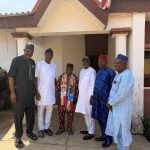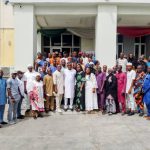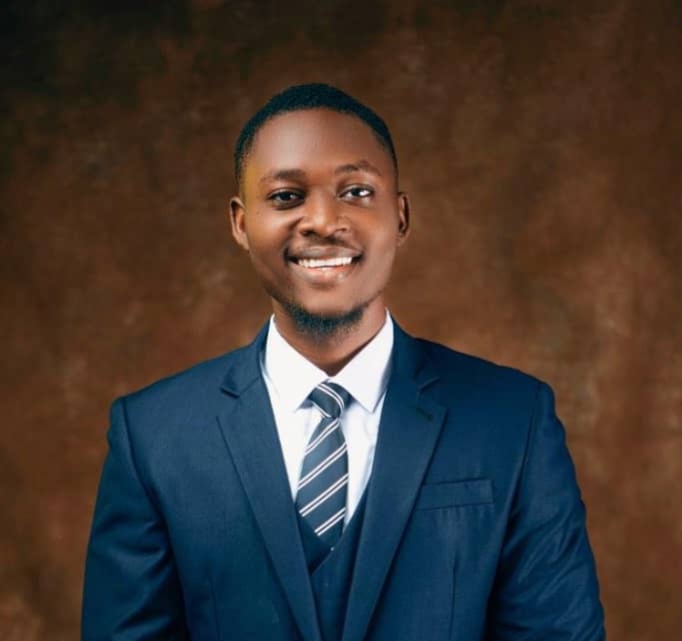Why My Foundation Trains Ebonyi Students on ICTs, Technology Education, Says Eze
A notable Foundation, Emmanuel Eze Foundation is taking a frontal role on the training of students in all rural communities in Ebonyi State on technology education and ICTs. In an interview, the Technical Lead of the Foundation and Web expert, William Eze said that he has visited many secondary schools in the state.
Can you tell us about your work with the Emmanuel Eze Foundation and how it began?
I joined the Emmanuel Eze Foundation (EEF) as a volunteer in 2022. I started as a technology mentor, helping young people access practical tech knowledge through our bootcamps and mentorship programs. Over time, I took on more responsibility and now serve as the Mentor, Instructor, and Technology Lead at EEF.
What sparked this new initiative?
Many students couldn’t join our online bootcamps due to limited internet access or lack of devices. So earlier this year, I began collaborating with some Local Government Development Centers to launch physical tech learning hubs. We deployed local volunteer mentors and provided learning stipends for study materials.
How does the program work?
We set up in-person training sessions led by local mentors. These cover digital literacy, basic programming, and essential tech skills. Each student receives structured lessons, printed resources, and mentorship in a supportive environment.
What impact have you seen so far?
The response has been encouraging. Some students had never touched a computer before and are now building simple applications. Local leaders have been helpful, offering space and support for the sessions.
What’s been the biggest challenge?
Sustainability. While we’ve managed funding internally so far, expanding the program will require partnerships with government, donors, and private organizations.
What’s your long-term vision?
I want to see these hubs in every local government area. Every student, no matter their background, deserves access to tech education.This initiative by the Emmanuel Eze Foundation is proof that grassroots solutions can create real opportunities. With the right support, the dream of inclusive tech education across all communities can become a reality.
But, how do we build a Web that works for Africa’s Future especially Nigeria?
The internet is everywhere — yet often, it still misses someone. In Africa, where millions of new users come online every year, the web still feels like a foreign place. Designed elsewhere. Built for someone else.
I’ve seen it firsthand — apps that freeze on entry-level smartphones, websites that eat data like candy, and platforms that overlook the way we speak, live, and connect. It’s time for something different. A web that works not just in Africa, but for Africa.
In places like Ondo, Kaduna, or Kebbi, many people browse the internet on ₦100-a-day data plans, using basic Android phones with limited storage. Add to that erratic electricity, and you get the picture: heavy websites with auto-playing videos aren’t just inconvenient — they’re unusable.
According to a 2024 GSMA report, over 45% of Sub-Saharan Africa is now online — a staggering number. But “being online” and “being served” are two different things. If our platforms aren’t built for real-world conditions, we’re building walls, not bridges.
When I build frontend systems for clients across Africa, I keep five things in mind:
Low bandwidth optimization — every kilobyte counts. Mobile-first UX — phones are the primary (and often only) device; support for older devices and browsers — not everyone is on Android 13; Offline-ready features — PWAs that still show data without a connection; Language and literacy — not every user speaks English, and not every user reads fluently and these aren’t just practices – they are necessities.
I didn’t start in tech. I studied Medical Laboratory Science. But curiosity pulled me in — I saw how software could scale solutions, not just diagnose problems.
My journey into code wasn’t linear. I googled everything. I broke things. I rebuilt them. Now, I work as a frontend engineer on platforms that serve thousands.
I’ve contributed to open-source, mentored developers, and written about technology with the same care I once gave to patients That background shapes everything I build. Because I know what it feels like to be the outsider, the beginner, the one being overlooked.
The next wave of internet users in Africa won’t just scroll — they’ll build. They’ll teach. They’ll launch startups from cafés in Aba, or write code on cracked screens in Kibera. But to do that, they need platforms that respect their realities.
We can’t afford to treat inclusion as an afterthought. It’s not a feature — it’s the foundation. If we get this right, we won’t just create better user experiences.
We’ll unlock opportunity. We’ll make the web feel like home.











